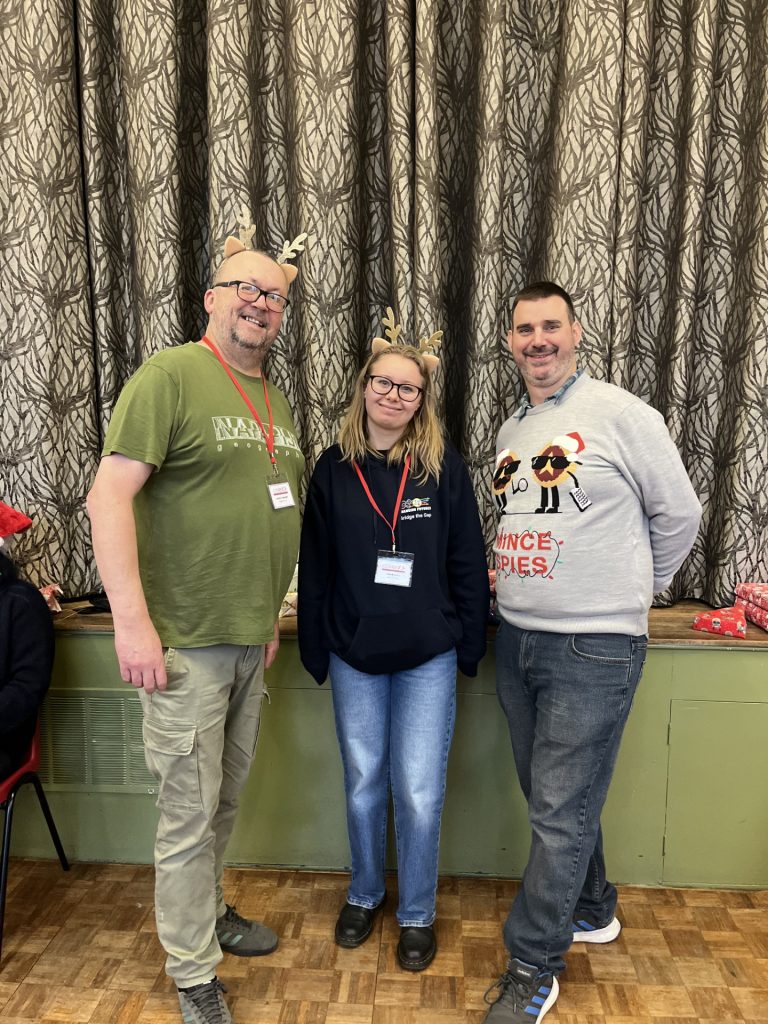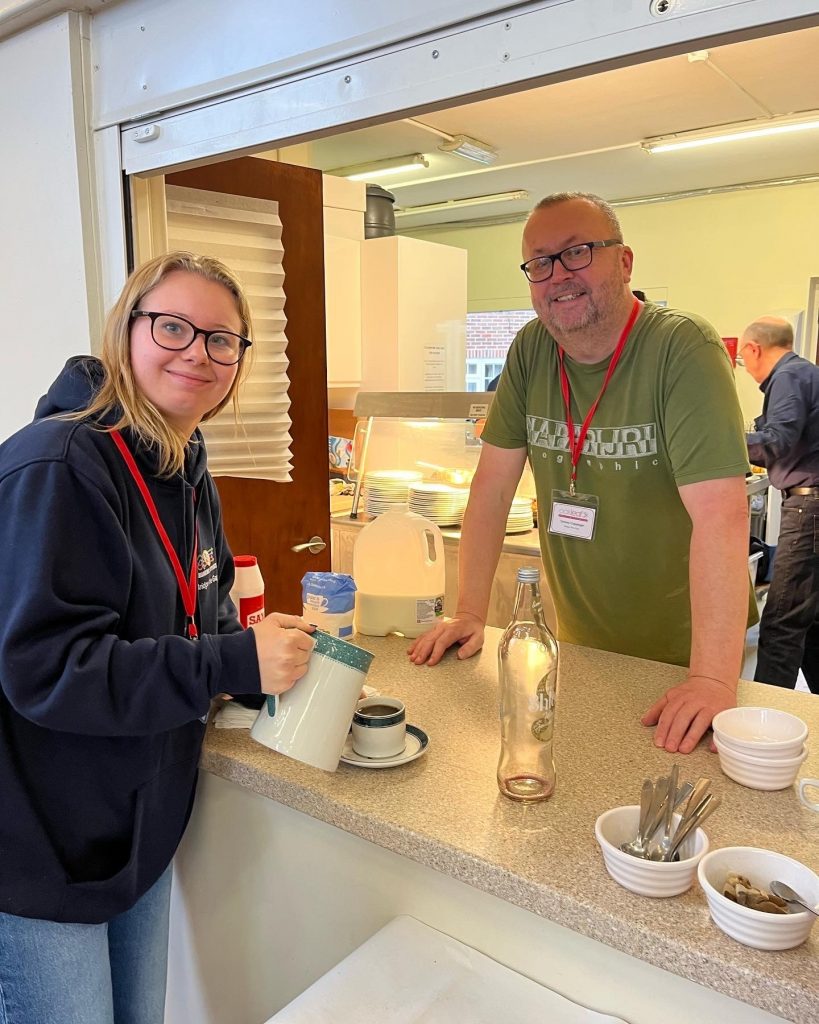05 Mar BLOG: Bridge the Gap Stories

Bridge the Gap is a specialist ‘trauma informed’ outreach service (part of the ‘Changing Futures’ Government Initiative) that has been developed in conjunction with lived experience experts and alliance members to offer person-centred key worker support to individuals experiencing multiple disadvantage in Surrey.
Oakleaf is a delivery partner of the Bridge the Gap Alliance, providing support on a one-to-one basis, 4-8 hours per week per client, 10am-8pm Monday to Friday, 9am-12pm on weekends. Our brilliant team, consisting of Bridge the Gap Support Workers: Tommy, Colin and Kate, work incredibly hard to empower individuals towards independence and stability.
“Working with individuals facing multiple disadvantage is not merely a duty; it is a profound act of empathy and social justice. In the face of marginalization, stigma and misunderstanding, our work becomes the bridge that connects these individuals to the support, understanding and empowerment they rightfully deserve.
Every interaction, every intervention, is a testament to their resilience and our commitment to advocate for their voices to be heard. It’s not just about what we do; it’s about the lives we touch and the transformative power of compassion.”
– Tommy, Oakleaf Bridge the Gap Support Worker
We would therefore like to shine a light on the amazing work that they do by sharing three stories of transformation:
For confidentiality reasons, clients’ names will remain anonymous.
Client 1:
This client is a 33-year-old with a lifelong residence on the same estate in Guildford. Struggling with debilitating mental health conditions and brain damage from a serious car accident, their day-to-day life is severely limited. Their living situation became precarious following a strained relationship with their mother and the lack of awareness regarding available support. The case took an unexpected turn, involving legal issues and a threat of homelessness.
Key Challenges Faced:
- Biological challenges: Debilitating mental health conditions including adult ADHD, anxiety disorder, unspecified non-organic psychotic disorder, executive functioning issues and cognitive decline compounded by post-traumatic brain syndrome.
- Resulting psychological factors: Behavioural coping mechanisms included extreme avoidance, isolation and occasional impulsivity and aggression. They rarely leave their accommodation and have difficulty engaging with support services.
- Legal issues and housing instability: Closure orders, eviction notices, unauthorized occupier status, and a lack of heating in their home.
Timeline of Support:
- Mental health support: This client was under the care of CMHRS at Guildford, receiving visits due to severe anxiety. Support focused on medication adherence.
- Housing challenges: Initiatives involved joining housing lists, exploring supported housing, and addressing unauthorized occupier issues. Heating problems persisted despite multiple attempts.
- Social care assessment: Long-delayed social care assessment highlighted their needs, leading to a shift towards social care housing solutions.
- Benefits review: They were not on the right benefits. A Personal Independence Payment (PIP) claim, initially declined, was successfully appealed, securing high-rate daily living and mobility.
Following support through Bridge the Gap… this client, despiteinitial apprehensions, improved their relationship with services due to a multi-agency approach and the support provided by Bridge the Gap. They were able to establish short-term and long-term goals, including obtaining PIP benefits, addressing housing issues, and achieving mobility through purchasing a car.
Our Support Workers also involved a Member of Parliament, which, alongside evidence compilation, led to an intervention with Guildford Borough Council; resulting in potential housing offers.
Client 2:
This client is a 45-year-old living in Guildford with their twin, whose life took a harrowing turn after enduring nine years of modern slavery and financial exploitation. This case came to light through a concerned social worker seeking a food parcel for them. The extent of their ordeal unfolded, revealing a shocking tale of exploitation and abuse.
Key Challenges Faced:
- Modern slavery: Exploited for nine years, they faced emotional and physical abuse, working at the beck and call of perpetrators, resulting in life-long trauma.
- Financial exploitation: Perpetrators controlled their bank accounts, limiting their monthly allowance to £40 for all expenses.
- Property coercion: Forced re-mortgaging of family property and living conditions worsened by the hoarding of perpetrator’s belongings.
- Biological challenges: Learning difficulties, executive functioning issues and a lack of emotional regulation leading to panic attacks and an inability to handle everyday tasks.
- Resulting psychological factors: Suspected PTSD, chronic anxiety, suicidal ideation and a pervasive sense of hopelessness alongside coping mechanisms that led to this client withdrawing into themselves, avoiding interactions and retreating from the world.
Timeline of Support:
- Emergency shelter: Recognizing the immediate threat, they were removed from the toxic environment and placed in a B&B to ensure their safety. Security measures such aschanging locks and implementing Pegasus protocol provided a sense of security, deterring potential harm from perpetrators.
- Mental health interventions: Home treatment teams and learning disability assessments were initiated, but concerns over the waiting list prompted a shift in approach.
- Collaborative care: Bridge the Gap in conjunction with Safe Haven and community mental health teams tailored interventions including anti-psychotic medication. Establishing trust was challenging, but crucial for this client to open up about the abuse and exploitation they endured.
Following support through Bridge the Gap… this client made resilient progress, navigating from crisis to stability thanks to intensive support, clinical interventions, and a multidisciplinary approach. They also had regular engagement with the Safe Haven, which evolved into a preventative measure and showcased this client’s resilience and newfound stability.
Client 3:
This client is a 46-year-old whose life took an unexpected turn, marked by mental health challenges and a tumultuous relationship. Once leading a stable life, their struggles manifested in chaotic behaviours and a deep interest in religion. This culminated in this client rough sleeping near the cathedral, leading to their sectioning for safety concerns.
Key Challenges Faced by MB:
- Biological challenges: This client endured serious abuse as a youngster, leaving lasting scars, which affected her decision-making. Their mental health deteriorated, leading to homelessness and a disconnect from support services. They struggle with motivation, time awareness and goal-setting due to poor mental health and ADHD indicators.
- Psychological factors: Diagnoses included Emotionally Unstable Personality Disorder (EUPD), Post-Traumatic Stress Disorder (PTSD), and psychosis centered around positive religious influences.
- Religious fixation: Intense focus on religion, spending extended periods in churches and on pilgrimages, and displaying odd behaviours.
- Trust Issues: Deep-seated mistrust hindered engagement with support services. This led to periods of rough sleeping, finding solace away from society and skilfully hiding their mental health issues.
Timeline of Support:
- Rough sleeper outreach: This client’s situation came to light through outreach efforts. Sectioned twice for safety, they faced challenges in engaging with support services due to trust issues.
- Building trust: A chance encounter led to multiple conversations, focusing initially on shared interests like architecture and gradually delving into this client’s past and mental health struggles.
Following support through Bridge the Gap… this client, despite initial challenges with medication adherence, gained stability through medication; this was set up through trust building and involvement of a prescribed psychiatrist. The introduction of a monthly depot injection also brought stability to this client’s mental health.
A successful PIP claim alleviated financial burdens, allowing them to clear debts and explore new opportunities. Strategic initiatives, such as providing a bus pass, minimized missing person reports, ensuring they could travel freely. This client was able to gain new perspectives due to increased engagement in a day service. This led to improved relationships and a renewed interest in life.
Collaborative efforts led to a fast-tracked sustainable housing application and a referral for supported housing better suited to this client’s needs. They secured a place in a house, marking a positive step towards stable and supportive accommodation.

All three of these cases posed complex challenges for Oakleaf’s Bridge the Gap team, requiring a multi-agency approach and political intervention to address legal, housing, and mental health issues.
Timely interventions, collaborative efforts, transparency, and understanding clients’ unique needs were crucial in initiating positive changes. Despite initial barriers, each of their journeys showcase the transformative power of tailored support, persistence, and advocacy in rebuilding lives impacted by complex mental health challenges.
To find out more about the Changing Futures: Bridge the Gap Alliance, click here. To learn more about Oakleaf’s Bridge the Gap support please visit our website or if you would like to make a referral, click here.
The rising costs of sustaining our services impact the support Oakleaf can provide to hundreds of individuals managing their mental health in Surrey. Your donations are vital to ensuring continued provision of wellbeing activities, work-related training, counselling and one-to-one support. For example:
£10 could fund one week of art supplies for our weekly art classes, which help reduce social isolation, increase confidence and boost positive mental health.
£25 could fund a fitness class for Oakleaf clients, led weekly by an experienced, certified trainer.
We are so incredibly thankful for all our supporters and will continue to do all we can to look after the mental health and wellbeing of the Oakleaf community. If you would like to make a donation to Oakleaf, please click here.




Sorry, the comment form is closed at this time.